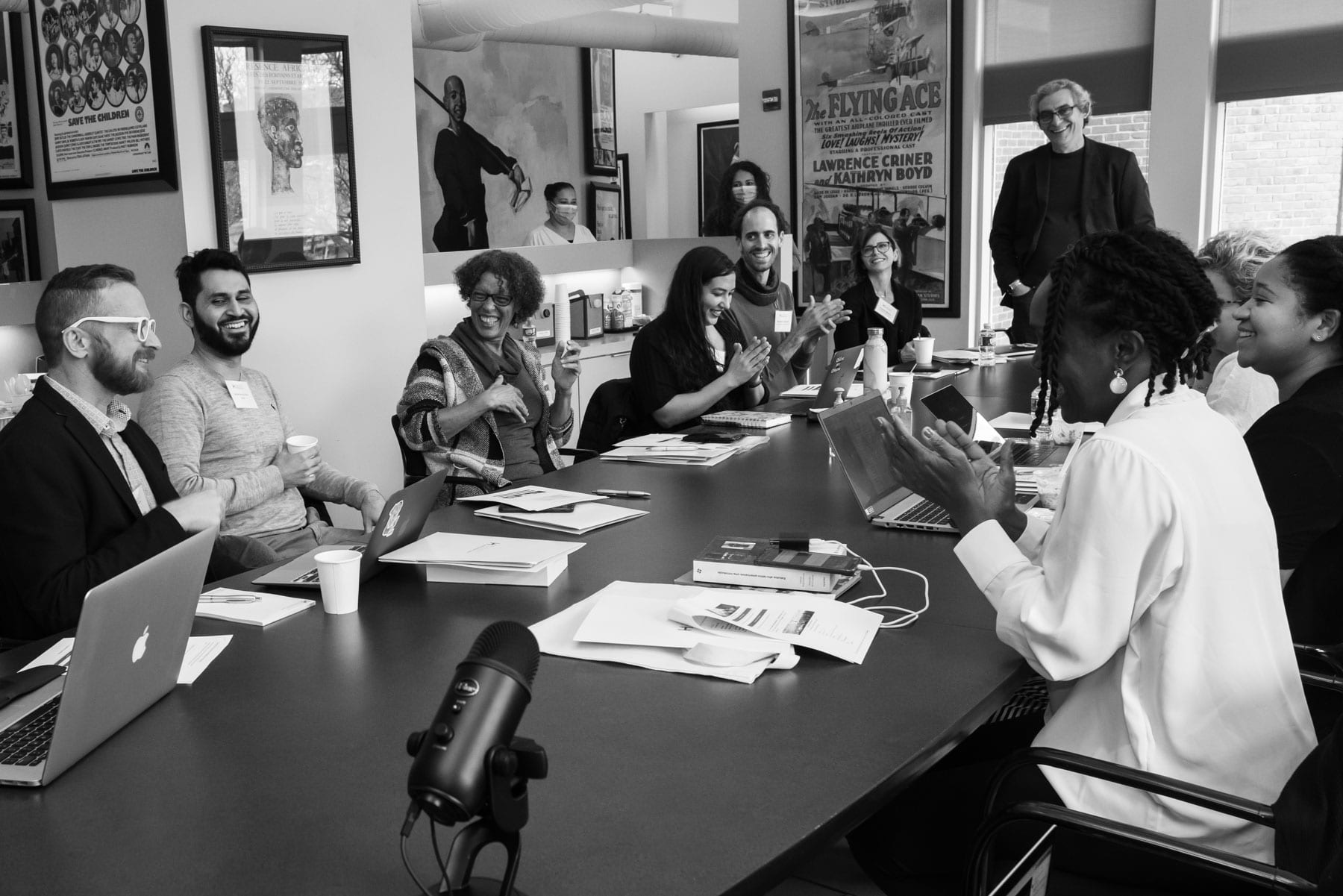
Prominent Brazilian philosopher and writer, Djamila Ribeiro, will present her most recent book to be translated into English: Where We Stand. Following her presentation, Ribeiro will engage in a conversation with current DRCLAS Visiting Scholar Janaina Lobo and ALARI Fulbright Fellow Carla Rosário.
Djamila Ribeiro´s book “Where We Stand” offers a compelling intervention into contemporary discussions of power and identity: the concept of “speaking place.” A crucial component of conversations on race and gender in Brazil, speaking place is the idea that everyone has a social position in the world and that what we are able to say, and how it is received by others, depends on it. Ribeiro traces the history of Black feminist thought through several centuries, examining the ways that Black women have been silenced, ignored, and punished for speaking.
Building on feminist standpoint theory, and in conversation with the works of Sojourner Truth, bell hooks, Audre Lorde, and others, Ribeiro invites all of us to recognize where we stand, to imagine geographies different from those we’ve inherited, and to speak a more humane world into being.
Moderators:
Janaina Lobo, 2024-25 Lemann Visiting Scholar
Carla Rosário, 2024-2025 Fulbright Fellow, Afro-Latin American Research Institute (ALARI)
Speaker and Moderators Bios
Djamila Ribeiro holds a degree in Philosophy and a master’s degree in Political Philosophy from the Federal University of São Paulo. She is the coordinator of Feminismos Plurais, which includes the Feminismos Plurais Space, the Feminismos Plurais online platform, and the Sueli Carneiro editorial label, which publishes the Feminismos Plurais book collection.
She is the author of several influential books, including Lugar de Fala (Jandaíra/Feminismos Plurais), Quem Tem Medo do Feminismo Negro?, Pequeno Manual Antirracista, and Cartas para Minha Vó (Companhia das Letras), as well as Diálogos Transatlânticos (Éditions Anacaona), which have been translated into multiple languages. Djamila Ribeiro is also a Guest Professor at the Andrés Bello Chair of New York University (NYU) for Spring 2024, and she teaches at the Pontifical Catholic University of São Paulo (PUC-SP).
Since 2022, she has been a member of the Paulista Academy of Letters, occupying chair No. 28, and serves as a board member for the Padre Anchieta Foundation, the Pinacoteca of São Paulo, and the University of São Paulo’s Fund for students’ racial and gender equity. She is a columnist for the newspaper Folha de S. Paulo and served as the Deputy Secretary for Human Rights of São Paulo in 2016. In 2019, she was awarded the Prince Claus Award by the Kingdom of the Netherlands, and she was recognized by the BBC as one of the 100 most influential women in the world.
In 2020, she won the Jabuti Prize, Brazil’s most prestigious literary award, in the Humanities category for Pequeno Manual Antirracista. In 2021, she became the first Brazilian in history to be honored by the BET Awards, granted by the African American community in the United States. In 2023, she received the Franco-German Prize for Human Rights.
Janaina Campos Lobo is a professor at the Institute of Humanities at the University of International Integration of Afro-Brazilian Lusophony (UNILAB), a public university in the Brazilian Northeast that fosters a process of internationalization through agreements with Portuguese-speaking countries, and particularly African countries, besides other countries in the global south.
She holds a PhD and a MSC in Social Anthropology from the Federal University of Rio Grande do Sul (UFRGS/Brazil). She was a visiting researcher in the Politics Department at The New School for Social Research (NSSR), in New York in 2022. She also serves as a researcher at the Center for Anthropology and Citizenship (NACi/UFRGS/Brazil). She has worked for five years (2012-2017) as an analyst and researcher in Agrarian Reform and Development, precisely in the sector that supports black communities, at INCRA/Brazil, an institution of the Brazilian federal government.
Her work focuses on Afro-descendant communities in Latin America, especially in Ecuador and Brazil, and reflects, based on ethnographic research, on development and ancestral territoriality. Her current project investigates climate change from the perspective of Afro-descendant communities, discussing the strong relationship between these communities and their surroundings, starting from climate ethnography that highlights territorial ties and other connections beyond the human component.
Carla Rosário is a Fulbright Fellow and Visiting Researcher at Harvard’s Afro-Latin American Research Institute (ALARI). A PhD candidate in Political Science at the Federal University of Minas Gerais (UFMG), Carla also holds a Master’s degree in Political Science and a Bachelor’s degree in Public Management from the same university. She specializes in the persistence of racism and racial inequalities in the construction of post-abolition democracies in the Americas. She is the co-founder and Director of GENI Institute, a Brazilian NGO dedicated to advancing gender, race equity, and intersectionality through public policy.
Presented in collaboration with Brazil Studies Program (DRCLAS) and Harvard Brazilian Association of Students and Scholars (HBASS).
